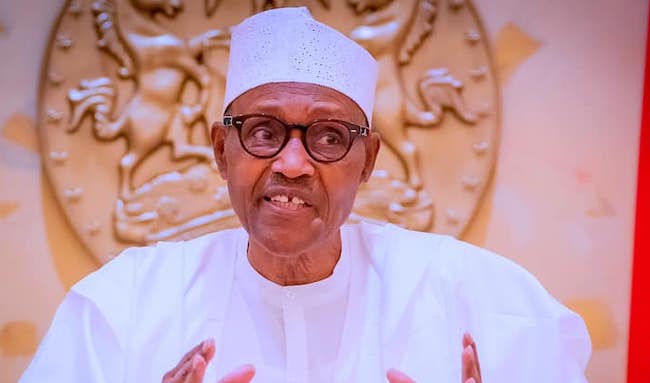Politics
SERAP seeks recovery of alleged ‘missing N881bn in 367 MDAs, sues Buhari

A right group, the Socio-Economic Rights and Accountability Project (SERAP) has filed a lawsuit against President Muhammadu Buhari, over his failure to probe allegations that over N880 billion of public funds were missing from 367 ministries, departments and agencies (MDAs) of the government.
Also, the suit is to ensure the prosecution of those suspected to be responsible for the missing funds, and the recovery of any missing or diverted public funds.
Joined in the suit as respondents are the Minister of Justice and Attorney General of the Federation, Abubakar Malami, SAN; and the Minister of Finance, Budget and National Planning, Zainab Ahmed.
The lawsuit comes after allegations contained in part 2 of the 2018 annual audited report by the Office of the Auditor-General of the Federation that N880,894,733,084.811 was spent by 367 MDAs without any appropriation.
In the suit filed last week at the Federal High Court in Abuja, marked FHC/ABJ/CS/1281/2021, SERAP is seeking an order of mandamus to direct and compel Buhari to promptly investigate the alleged missing public funds, and ensure the prosecution of suspected culprits, and the full recovery of any missing funds.
READ ALSO: SERAP commences lawsuit against Buhari over plans to monitor WhatsApp
The development was disclosed by Deputy Director, SERAP, Kolawole Oluwadare, in a statement made available to Ripples Nigeria on Sunday.
In the suit, SERAP is arguing that complying with constitutional requirements and international standards on the spending of public funds would ensure effective and efficient management of public resources and put the country’s wealth and resources to work for the common good of all Nigerians.
SERAP maintained that it was in the best interest of justice to grant its application, saying it would improve respect for the rights of Nigerians, and their access to essential public goods and services, which ought to be provided by the indicted MDAs.
The suit read in part: “The failure to investigate the allegations of grand corruption contained in part 2 of the 2018 annual audited report constitutes a grave violation of the duty placed on the Nigerian government to take appropriate measures to promote transparency and accountability in the management of public finances.
“Mandamus is a high prerogative writ which lies to secure the performance of public duty. It gives the command that a duty of a public nature which normally, though not necessarily is imposed by statute but is neglected or refused to be done after due demand, be done.
“If there is discretion to perform the duty, the court has the power to examine whether the discretion to refuse to act has been properly exercised.
“Recovering the alleged missing public funds would reduce the pressure on the Federal Government to borrow more money to fund the budget, enable the authorities to meet the country’s constitutional and international obligations, and reduce the growing level of public debts.”
Furthermore, the suit stated, “These damning revelations suggest a grave violation of the public trust, the Nigerian Constitution of 1999, and international human rights and anti-corruption standards. Spending public funds without appropriation will create opportunities for corruption.
“Transparent and accountable public financial management is a key pillar of good governance, and of vital importance to provide public goods and services to citizens, as well as to create and maintain fair and sustainable economic and social conditions in the country.
“Corruption thrives in contexts that provide opportunities to engage in illicit conduct, widespread motives to take advantage of such opportunities and weak controls.
“The prevention of corruption is more effective in environments that minimize opportunities, comply with constitutional and international legal requirements and standards, as well as encourage integrity.”
However, no date has been fixed for the hearing of the suit.
Meanwhile, section 80(2) of the Nigerian Constitution provides that no money shall be withdrawn from the Consolidated Revenue Fund of the Federation except to meet expenditure that is charged upon the fund by the Constitution or where the issue of the money has been authorized by an Appropriation Act, Supplementary Appropriation Act or an Act passed in pursuance of section 81 of the Constitution.
Similarly, articles 5 and 9 of the UN Convention against Corruption to which Nigeria is a state party impose legal obligations on the president to ensure proper management of public affairs and public funds, and to promote sound and transparent administration of public affairs and property.
Join the conversation
Support Ripples Nigeria, hold up solutions journalism
Balanced, fearless journalism driven by data comes at huge financial costs.
As a media platform, we hold leadership accountable and will not trade the right to press freedom and free speech for a piece of cake.
If you like what we do, and are ready to uphold solutions journalism, kindly donate to the Ripples Nigeria cause.
Your support would help to ensure that citizens and institutions continue to have free access to credible and reliable information for societal development.
























